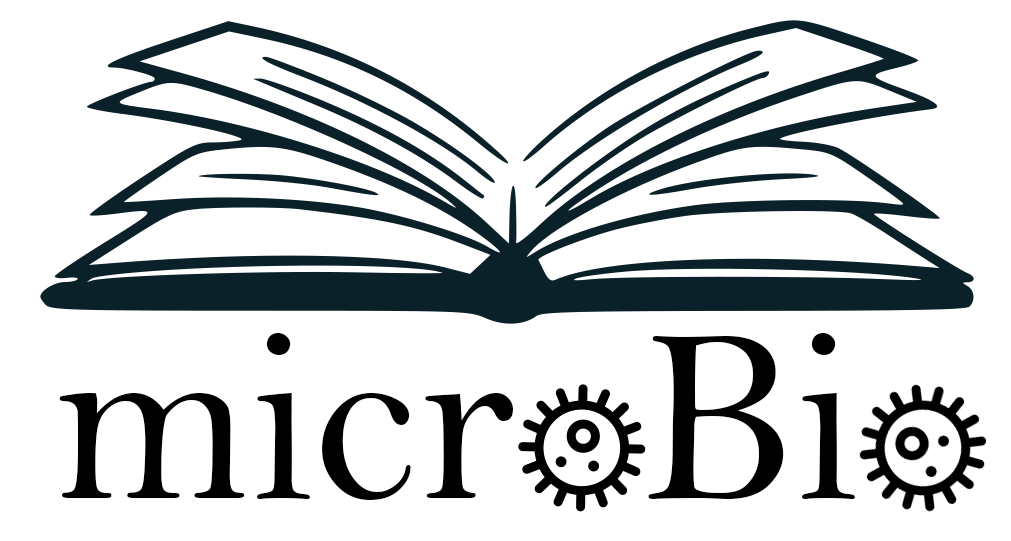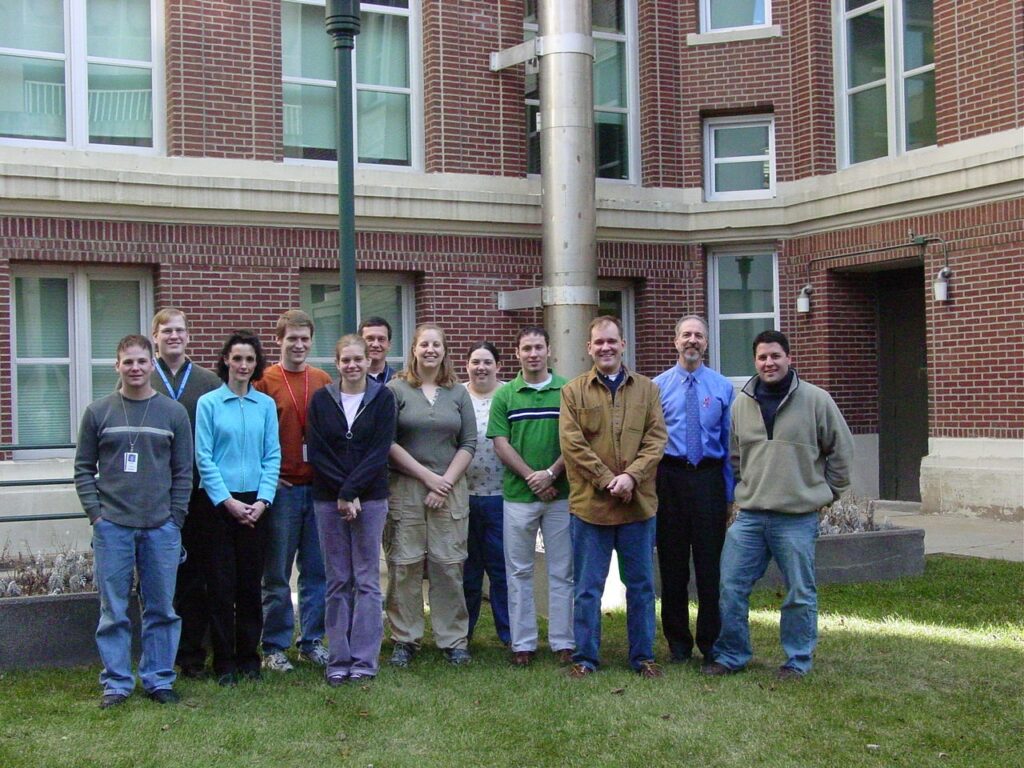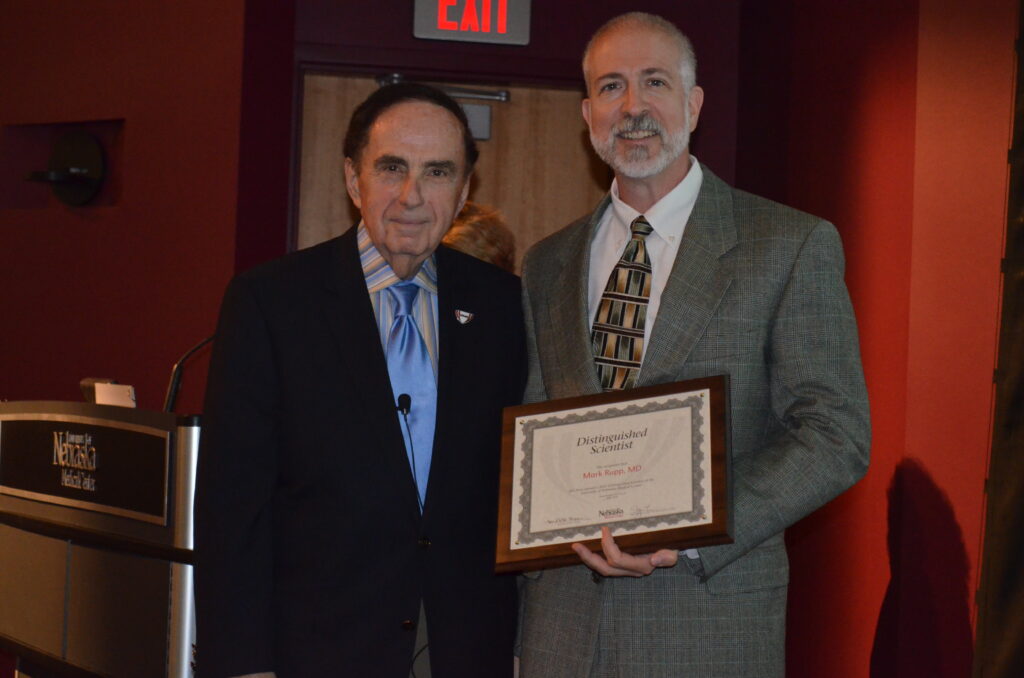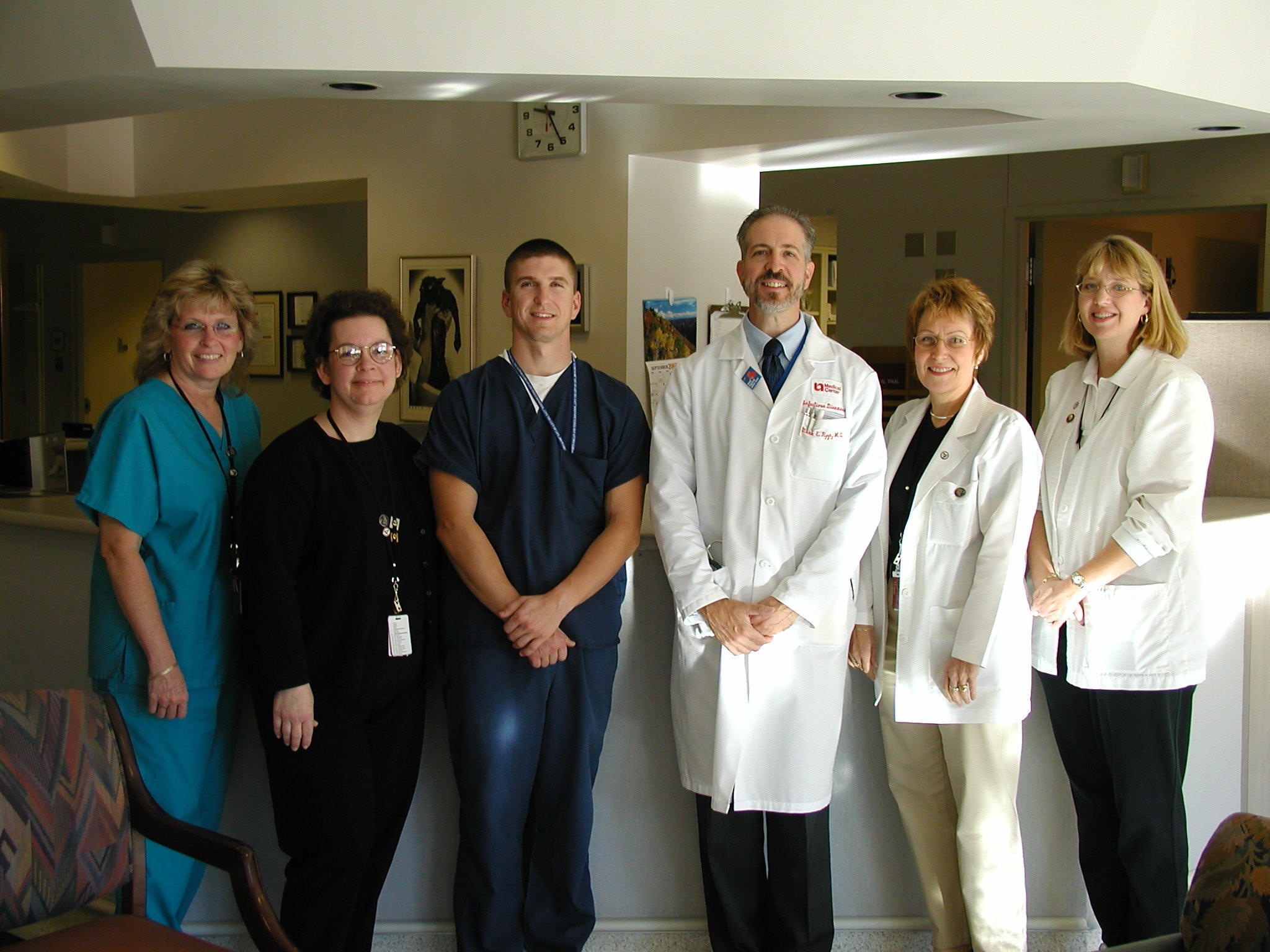
This post is part of a multi-part installment exploring the career and life of Dr. Mark Rupp, outgoing Chief of Infectious Disease at UNMC. If you missed our first post introducing Dr. Rupp and this series, catch up here. Otherwise, read on to learn more about Dr. Rupp’s career in medicine and his impact on UNMC.
I’ve been fortunate to enjoy a long career at UNMC and I have many persons to thank. After completing residency in Internal Medicine, I spent 4 years as an ID Fellow at Virginia Commonwealth University and trained in Dr. Gordon Archer’s lab studying staphylococcal pathogenesis. I came to UNMC in 1992 to join the new UNMC/Creighton University combined ID Division led by Laurel Preheim. Prior to 1992, UNMC ID was an ID “one-man show” with J Calvin Davis. The UNMC component of the combined ID Division consisted of Drs. Swindells, Dominguez, Rupp, and Preheim, with Cal Davis leading the University Hospital infection control program.

I opened a lab at UNMC primarily directed toward understanding adherence and biofilm formation in coagulase-negative staphylococci. One of the smartest professional decisions I made was the recruitment of Dr. Paul Fey to UNMC ID and the Staphylococcal lab. Dr. Fey has been tremendously successful and was a cornerstone in the development of the UNMC Center for Staphylococcal Research.
In about 1994, I assumed leadership of the infection control program, and most of my career has been dedicated to better understanding and preventing healthcare-associated infections. In 1998, with the merger between Clarkson Hospital and University Hospital, Dr. Phillip Smith transitioned to the UNMC ID Division Chief position. Phil moved the Division forward and had the foresight to establish the Nebraska Biocontainment Unit.
A few of my career highlights include my service on the Society for Healthcare Epidemiology of America (SHEA) Board of Directors and being the President of SHEA in 2009 (the year of the H1N1 flu pandemic – just a warmup act for the 2019 COVID-19 pandemic). I founded the Antimicrobial Stewardship Program at UNMC in 2004 and turned over the directorship to Dr. Van Schooneveld in 2009, who has helped to build the stewardship program into the nationally recognized program it is today. I was fortunate to assume leadership of the ID Division in 2011.

In 2014, the ID Division was tested during the West Africa Ebola outbreak, and the Biocontainment Unit, established by Drs. Smith and Angela Hewlett, rose to the occasion with great success and notoriety. The care of patients with Ebola hemorrhagic fever was the start of the next phase of the UNMC Biosecurity Program and led to the development of the Global Center for Health Security. The UNMC ID Fellowship kicked off in 2012 and, despite stiff headwinds from national ID training trends, under the leadership of Dr. VanSchooneveld, has been terrifically successful. In part because of our performance during the Ebola outbreak, the CDC supported our development of the Nebraska ICAP and ASAP programs in 2015 (a unique model of cooperation between the CDC, NEHHS, and UNMC to improve infection prevention and antimicrobial stewardship throughout the state of Nebraska) which came under the capable leadership of Dr. Salman Ashraf in 2017 and now Dr. Juan Teran. I served as the Chief of Staff for Nebraska Medicine in 2018 and 2019 and remember thinking as 2019 was winding down that I would enjoy not having quite as many 6:30 or 7:00 AM or 5 PM meetings. Unfortunately, SARS-CoV-2 and the COVID-19 pandemic had different plans. Again, the UNMC ID Division stood up and served in an exemplary fashion.

It has been incredibly gratifying to help the UNMC ID Division grow from the 3 UNMC faculty in 1992 to the over 30 faculty, over one dozen specialized APPs, 6 Fellows, and dozens of support staff and clinical researchers that make up the Division today and to witness UNMC ID blossom into a nationally well-recognized Division with excellent training programs, state of the art clinical care, and vibrant clinical research. UNMC ID is known for expertise in immunocompromised host ID that has been developed over the years by Drs. Kalil, Florescu (who tragically died in 2023), Freifeld, and Zimmer; HIV care capably led by Dr. Swindells for many years and more recently by Drs. Fadul and Bares; Orthopedic ID led by Drs. Hewlett and Cortes-Penfield; and Community Practice led by Dr. Starlin. Many other faculty are involved in our programs in infection prevention, antimicrobial stewardship, OPAT, biocontainment, telehealth, DEI/Advocacy, and other areas. We are truly fortunate to have so many smart, talented, and hardworking people call UNMC ID their professional home. UNMC ID is a wonderful mix of persons of different ages, genders, ethnic backgrounds, and religious/cultural beliefs – it is a place where people are comfortable and can achieve their full potential.
As I wind down my career in UNMC ID, there are so many to thank for the great opportunities and support I’ve been afforded. I would also be remiss to not note that any career success I’ve enjoyed has only been possible with the unwavering support of my wife and family.
-Dr. Mark E. Rupp
2 comments